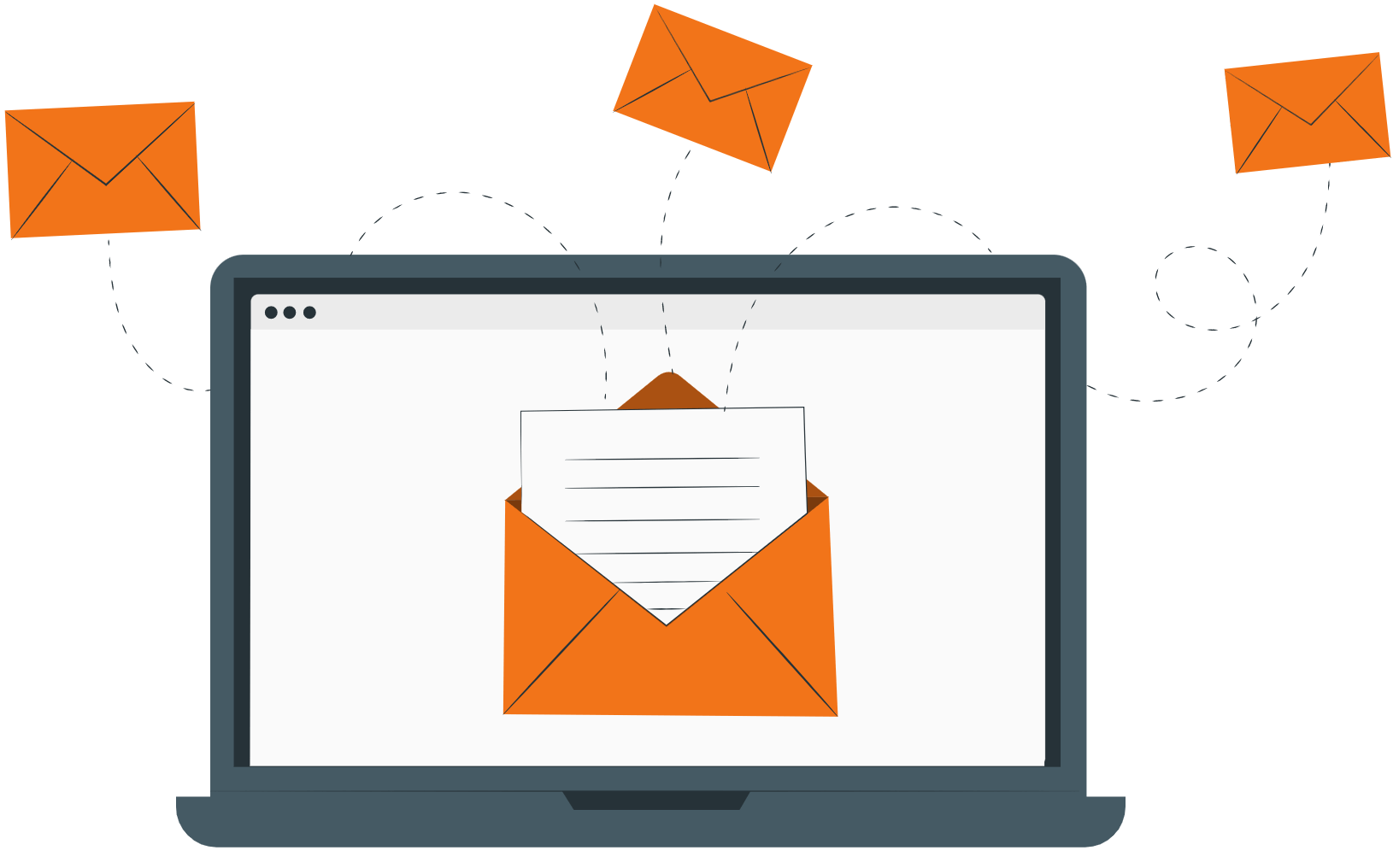Have you ever read a job listing and saw “multitasking” listed in the required skills? That situation is not uncommon and is something many people take pride in doing. We all know that person who claims they can do five things simultaneously and finish them all on time. Maybe that person is you. If so, there’s a lot of evidence showing that time management and multitasking don’t go well together.
Unfortunately, a lot of information shows the opposite: multitasking may be a time-management thief, one that tricks you into thinking you’re getting a lot done. As a result, it is essential to understand why multitasking is killing your time management and how you can break out of this bad habit. We’ll also give you a few tips you can use to ensure that you don’t fall victim to this common mistake.
Why Does Multitasking Kill Your Time Management?
Time management and multitasking proponents claim that handling multiple tasks simultaneously gets more done by spreading your attention among various duties.

However, science does not seem to back up this fact. For example, a study published by Stanford found that multitasking individuals did almost universally more poorly than people who focused on a single task or duty.
The study found that the more a person multitasked, the worse they did on their tasks. While they may have gotten things done more quickly, the results were less effective.
More mistakes were made, and the overall quality was much poorer. The results here fly in the face of what many people assumed was a significant advantage for people who multitask their work.
Why is This the Case?
The human brain is a fantastic tool, perhaps the most fantastic creation on Earth. It can process great reams of information, store it indefinitely, create awesome art, and create innovations and technology that change the world.
However, even this fabulous computer has only so much computing power. This mental energy can quickly run out and cause great work struggles.
Why Time Management and Multitasking are Inefficient in the Workplace?
The human brain only has so much processing power and focuses on spending itself. As you begin breaking up your attention into multiple tasks, this attention diverts itself between these duties. For example, you may split your work duties between writing emails, creating new reports, and taking phone calls. Naturally, you’re likely to spend more time on one of these tasks than others: a common time management and multitasking error.

As a result, you may give your reports 80% of your attention, your new emails 15%, and your phone calls just 5%. Unfortunately, you’re doing less than 100% on these tasks! As a result, your emails may seem brief, short, and poorly composed. And you may seem rude on the phone to callers, as you may seem like you’re in a hurry to get back to other types of work.
What ultimately happens is that you constantly feel like you’re being rushed or like you have too much work thrown at you at once. Your job is probably giving you enough time to handle your duties, but multitasking makes it needlessly complicated. Even worse, it could cause stress and job burnout that may end up causing you to leave your position and experience other issues.
How Multitasking and Splitting Your Attention Causes Stress?
As you can imagine, splitting your attention in this way can cause your brain to tire out quickly. As it is divided between many tasks, your mind is constantly gauging your progress and probably finding that you’re coming short.
As a result, you may start getting stressed and putting more work into your task than necessary, spending more time doing something that should take very little time. As a result, you may multitask even more and try to get more done in a shorter time.

Unfortunately, all that’s likely to happen is a lot of stress and a time management schedule that’s just blown out the window. This stress can start tiring and make your job more difficult.
For instance, you may schedule longer work sessions daily to tackle your tasks when you’re already working overtime. This situation may quickly spiral out of control in which even the weekend and paid time off won’t help.
What Should You Do If Time Management and Multitasking Aren’t Working for You?
Here’s another troubling fact about multitasking: a study reported by Forbes Magazine found that it limited productivity by as much as 40% and can lower a person’s cognitive ability and even their IQ
Related: an article about time management facts
Thankfully, these limitations are not permanent: they only occur while attempting to multitask, and you haven’t developed your time management skills properly. But, as a result, it is vital to find an alternative that makes sense for you. Surprisingly the answer is obvious: work on one task at a time.
For example, instead of writing a report, answering emails, and taking phone calls, minimize your email window, mute your phone, and work on just your report. Focus on it until you are done, add all the details you need, proofread it when it is finished, and add extra touches. Put on a pair of noise-blocking headphones if your office gets too loud, and you should find it easier to complete your work on time.
This step not only cuts back on mental distraction and other troubles but also helps you finish tasks more quickly. Why is that the case? Your mind focuses better when it has just one thing to do at a time. It can devote 100% of its energy to handling all of the elements of your current task. This step also minimizes your stress by allowing you to gauge just one aspect of your work, avoid feeling stressed out, and increase the quality of your work.
Time Management Tips You Should Use Instead of Multitasking
Instead of multitasking your day and stressing out, focus on one task at a time and use the tips below to improve your productivity. The methods below enhance your time management by breaking your day into manageable, straightforward tasks. It also avoids multitasking risks and keeps you from falling into that habit.
Create a Simple Task List
Create a detailed list of all your daily and weekly duties and schedule them properly throughout your week. When shifting to a one-task work method, you may find yourself struggling initially to know how much you can do in an hour. Typically, you want to do no more than 1-2 things in an hour, giving you time to devote proper attention to each.
Master Your Priorities
Skilled time management professionals understand the importance of prioritization. They instinctively know how to decide what duties matter the most in their day. If you have yet to master this skill, you may need to take some time to examine your day-to-day tasks. Set priorities on all your tasks and get to the most urgent and important ones first. Less critical and vital duties can be set aside until later.
Try the Pomodoro Technique
The Pomodoro Technique is a time management concept that breaks your day into 25 minutes of focused work and five-minute breaks. That burst of concentrated activity gives you time to focus on your task and finish most of its needs before you relax for five minutes and get your mental energy back. It also gives your multitask-addicted brain a rest.
Fun Fact: Switching your mind between different tasks will cost you a little mental processing time, known as “switch cost.” While this cost may only be a fraction of a second, it can add up to minutes or more if you multitask throughout the day. Minimize your switch cost, and you can minimize your inefficiencies and avoid feeling fatigued at the end of the day.
Set a Good Pace
Please define your work pace and stick to it. Some people naturally work well quickly and can get a lot done in a short time. Other people need more time to consider and think about their duties. Therefore, it is essential to set a pace that feels right for you and stick with it wherever you fall on this scale. Doing so can help you avoid stress and finish your duties more quickly.
Delegate Activities, When Needed
Rather than try to handle everything that comes your way, don’t be afraid to delegate! Take non-urgent and unimportant tasks and see if you can’t find someone to manage them for you. For instance, you can hire someone to take your calls during a busy part of the day, allowing yourself to focus on your most important duties before getting back to those calls.
Don’t Put Off Important Tasks
Tackle your essential duties immediately, eat the frog as they say, and don’t try to think of the “right” time to do them. It’s time to face an important fact: nobody wants to be at work, but they go out every day and get things done. So even if you don’t feel like doing something important, just get started. Once it’s out of the way, you’ll feel a great sense of overwhelming relief.
Conclusion
Follow these simple tips, and you should find your productivity soaring after time management and multitasking take you down. Many of them are things you can easily integrate into your life without a lot of work, though buying a fun Pomodoro clock may make that step easier. The hardest part will be breaking the multitasking habit: it’s best done cold turkey, as it can prevent you from falling off the wagon and doing too much work again.


